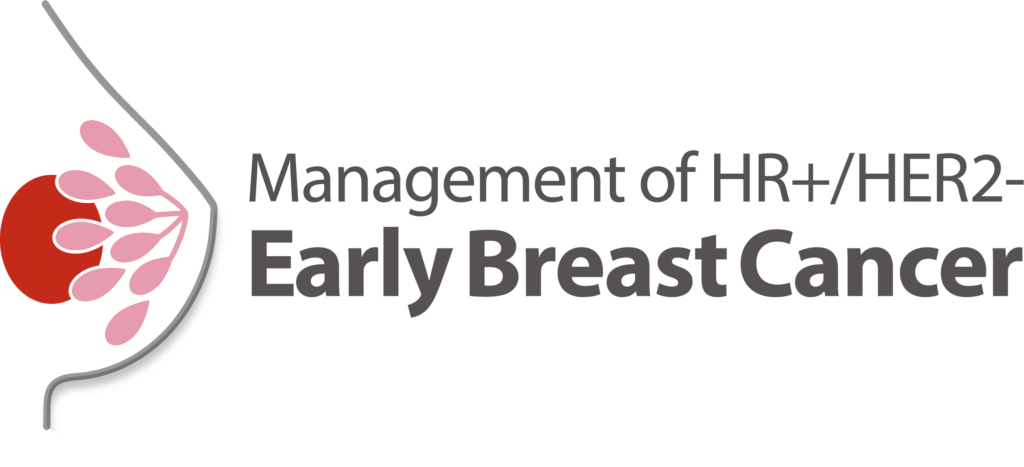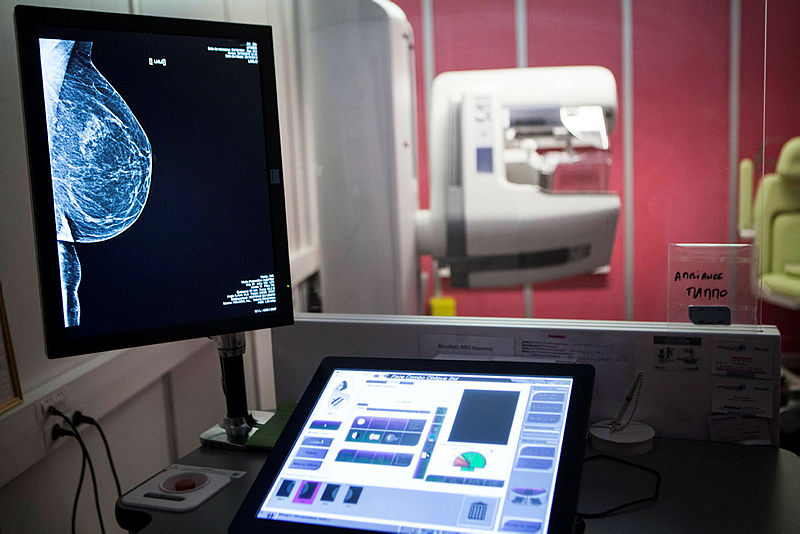medwireNews: Interim analysis of the monarchE trial indicates that the invasive disease-free survival (iDFS) benefits of adding adjuvant abemaciclib to endocrine therapy have strengthened after 4 years of follow-up in patients with high-risk, hormone receptor-positive, HER2-negative, early breast cancer.
The updated findings for the open-label phase 3 trial were reported at the 2022 San Antonio Breast Cancer Symposium in Texas, USA, and simultaneously published in The Lancet Oncology.
Overall, 5637 patients (99.4% women) attending 603 institutions in 38 countries were randomly assigned to receive up to 10 years of standard-of-care endocrine therapy with or without 2 years of abemaciclib 150 mg given twice daily.
All the patients were at high risk for recurrence, with the majority (91%) having four or more positive axillary lymph nodes or between one and three positive nodes plus a tumor size of at least 5 cm or histologic grade 3 disease. The remaining patients had between one and three positive lymph nodes plus an intermediate-risk clinicopathologic grade and size, and a Ki67 index of at least 20%.
After a median follow-up of 42 months, median iDFS in the full intention-to-treat population was not reached in either trial arm, but the previously reported iDFS benefit was retained with a hazard ratio (HR) for invasive disease or death of 0.664 favoring the CDK4/6 inhibitor.
Indeed, the estimated 4-year rate of iDFS was 85.8% for patients given abemaciclib plus endocrine therapy versus 79.4% for the controls, giving an absolute difference of 6.4 percentage points, an increase on the previously reported 2.8 and 4.8 percentage point differences after 2 and 3 years of follow-up, respectively.
Distant relapse-free survival was also significantly better with abemaciclib use, with a HR of 0.659 and estimated 4-year rates in the abemaciclib and control arms of 88.4% and 82.5%, respectively. The absolute difference between the arms again deepened, to 5.9 percentage points from the respective 2.5 and 4.1 percentage point differences after 2 and 3 years.
In addition, Stephen Johnston (The Royal Marsden NHS Trust, London, UK) and co-investigators report: “The results of the subgroup analyses continue to illustrate the consistent treatment benefit associated with the addition of abemaciclib to standard endocrine therapy across prespecified subgroups for both invasive disease-free survival and distant relapse-free survival.
“Notably, the accumulation of recurrence events over time has allowed a more precise estimation of the magnitude of benefit, and all HR estimates now favour abemaciclib, even in subgroups with a better prognosis (ie, patients who are postmenopausal, patients with grade 1 or stage II tumours or a low Ki-67 index [<20%]).”
For the prespecified overall survival analysis, the data were immature. A comparable 5.6% and 6.1% of patients in the respective abemaciclib and control arms had died, giving a nonsignificant HR of 0.93. The corresponding rates of breast cancer-specific deaths were 4.2% and 4.9%.
Safety data showed that grade 3 and 4 treatment-emergent adverse events were more common with abemaciclib plus endocrine therapy than endocrine therapy alone (46.2 and 3.2% vs 15.7 and 0.8%), as were serious adverse events (15.5 vs 9.1%).
The most common treatment-emergent adverse events at higher grades with abemaciclib versus endocrine therapy alone were grade 3 neutropenia (19.0 vs 0.7%), leukopenia (11.3 vs 0.4%), and diarrhea (7.8 vs 0.2%). Two deaths from diarrhea and pneumonitis were considered possibly related to abemaciclib use.
The researchers note that there were no new cases of venous thromboembolism in the monarchE population since the previous interim analysis. “Given the risk of venous thromboembolic events, which might be affected by the choice of endocrine partner, and the early onset of toxicities such as diarrhoea, early intervention and risk monitoring are the most important measures to improve tolerability,” write Johnston et al.
They conclude: “With a tolerable safety profile, these results further confirm the positive benefit–risk [ratio] of adjuvant use of abemaciclib together with endocrine therapy in reducing the risk of recurrence for patients with high-risk, hormone receptor-positive, HER2-negative, node-positive, early breast cancer.”
medwireNews is an independent medical news service provided by Springer Healthcare Ltd. © 2022 Springer Healthcare Ltd, part of the Springer Nature Group
SABCS 2022; San Antonio, Texas, USA: 6–10 December
Conference link: https://www.sabcs.org/2022-SABCS
Lancet Oncol 2022; doi:10.1016/S1470-2045(22)00694-5
Link: https://www.thelancet.com/journals/lanonc/article/PIIS1470-2045(22)00694-5/fulltext
Author: Lynda Williams

